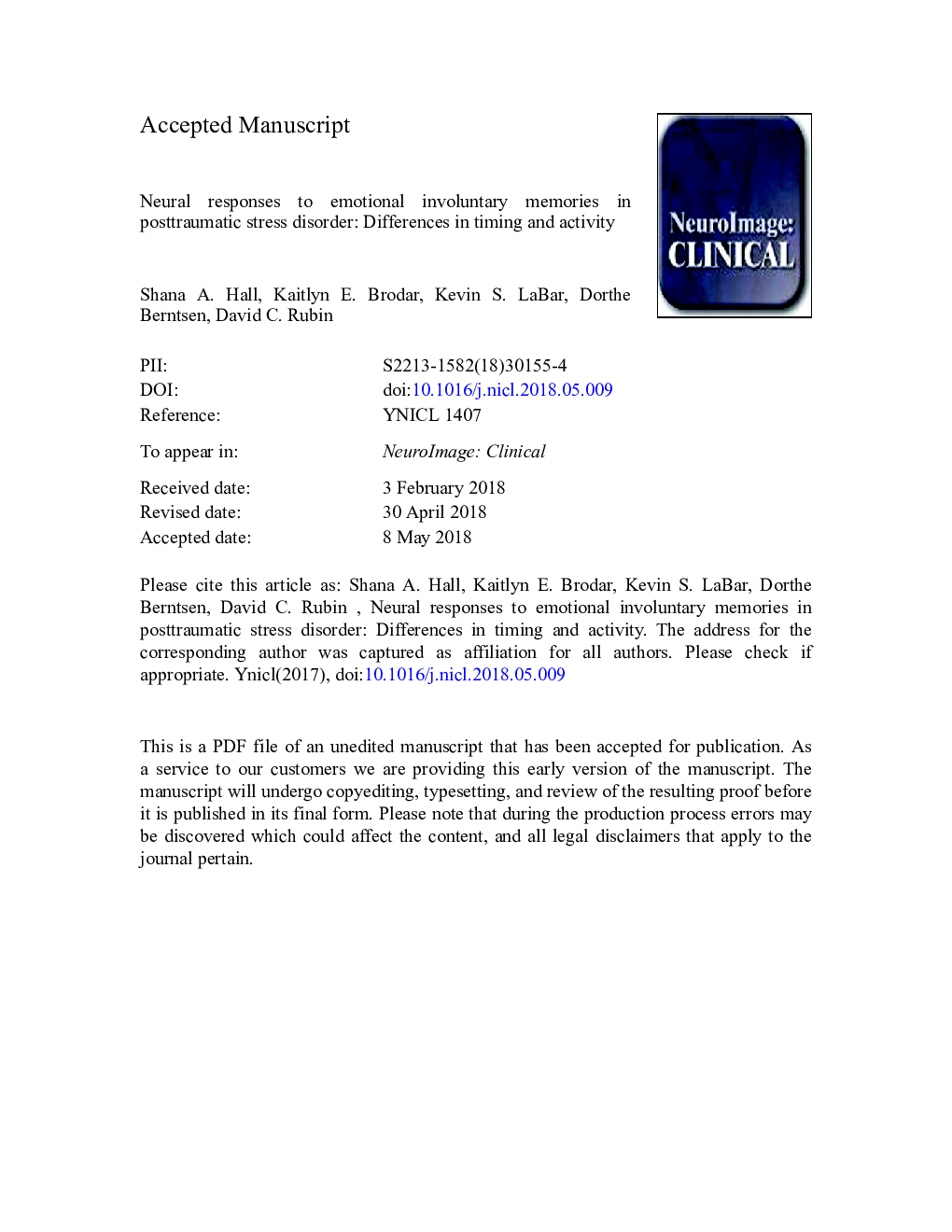| Article ID | Journal | Published Year | Pages | File Type |
|---|---|---|---|---|
| 8687774 | NeuroImage: Clinical | 2018 | 45 Pages |
Abstract
The similarity between PTSD and controls in neural substrates underlying involuntary memories suggests that, unlike voluntary memories, involuntary memories elicit similar activity in regions critical for memory retrieval. Further, the delayed neural responsivity for involuntary memories in PTSD suggests that factors affecting cognition in PTSD, like increased fatigue, or avoidance behaviors could do so by delaying activity in regions necessary for cognitive processing. Finally, compared to neutral memories, negative involuntary memories elicit hyperactivity in the vmPFC, whereas the vmPFC is typically shown to be hypoactive in PTSD during voluntary memory retrieval. These patterns suggest that considering both the temporal dynamics of cognitive processes as well as involuntary cognitive processes would improve existing neurobiological models of PTSD.
Keywords
IAPSSPGRMemory networkFinite impulse response (FIR)Ventromedial prefrontal cortex (vmPFC)vmPFCACCIPCFWEFIRPCCSPMFDRMTLPosttraumatic stress disorderPosttraumatic stress disorder (PTSD)PTSDFunctional magnetic resonance imaging (fMRI)Involuntary memoryfamily-wise errorecho timeRepetition timeInternational Affective Picture Systemposterior cingulate cortexanterior cingulate cortexInferior parietal cortexmedial temporal lobesStatistical Parametric MappingFinite Impulse Responseventromedial prefrontal cortex
Related Topics
Life Sciences
Neuroscience
Biological Psychiatry
Authors
Shana A. Hall, Kaitlyn E. Brodar, Kevin S. LaBar, Dorthe Berntsen, David C. Rubin,
